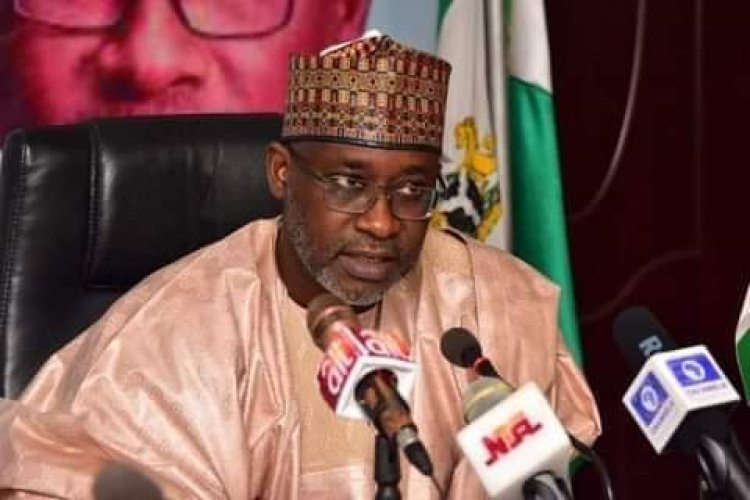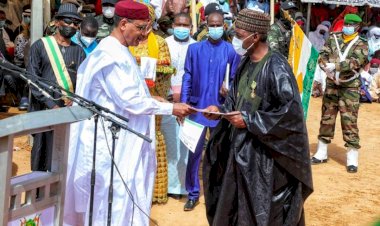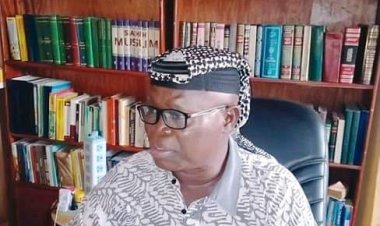Nigeria Needs N6trn To meet demands on water infrastructure – Minister

The Minister of Water Resources, Suleiman Adamu, says Nigeria needs not less than six trillion Naira to meet the demands for water supply infrastructure in the country.
Mr Adamu said this at the 28th Regular Meeting of the National Council on Water Resources in Abuja on Tuesday.
The minister, who noted that major challenges facing the sustainable development of the water sector were funding, poor water governance, obsolete infrastructure amongst others.
He said the meeting was an opportunity to discuss developments in the water sector, evaluate issues, address identified challenges and chart a way forward towards resolving contemporary challenges.
Speaking on the theme, “Emerging Financial and Management Challenges for Sustainable Water Infrastructure in Nigeria”, Mr Adamu said a review of water governance, sustainable financing, pricing for water services was being considered.
He said resolutions from the last council meeting saw the need for states to key into the current Partnership for Expanded Water, Sanitation and Hygiene, PEWASH, initiative of the Federal Government.
This, he noted, is being piloted in some states in a performance approach through the provision of separate budget line in the state rural agency of water supply and sanitation agencies.
He added that the World Bank had committed 700 million dollars to support Nigeria in its National WASH Action plan towards revitilisation of the sector through the Sustainable Urban and Rural Water Supply and sanitation Hygiene, SURWASH, programme.
“SURWASH is expected to provide six million people with basic drinking water services and 1.4 million people access to improved sanitation services.
“The programme will deliver improved WASH services to 2,000 schools and healthcare facilities and assist communities to achieve open defecation-free status’’.
Earlier, Oumar Dombouya, UNICEF WASH Manager, said the 2019 National Outcome Routine Mapping of Water, Sanitation, and Hygiene Service Levels (WASH-NORM), showed that 30 per cent of the people in Nigeria (60 million people) do not have access to clean water.
He noted that UNICEF had been giving its support to change this narrative through Village Level Operation and Maintenance to improve functionality and sustainability of water facilities across the country.
Mr Dombouya pledged the commitment of the UN body to support durable and cost effective interventions towards making the country meet its SDG target by 2030.
Dr Edwin Isotu-Edeh, National Consultant, Public Health and Environment, representing the WHO Nigeria Country Representative, said it was worrisome that one in three persons still lack access to basic drinking water globally.
He said there was need to democratise access to WASH services in the county, saying states must emulate what was being done in the federal level to ensure sustainability.
“States can emulate what was being done by the federal government, ad all stakeholders ought to put water as a key component of all interventions’’.
Olusade Adesola, representative of the FCT Minister, Dr Mohammed Bello, said provision of clean and safe clean drinking water to FCT residents was top priority of the Federal Government through the FCT Administration.
He listed challenges of population explosion, inadequate funding amongst others, saying implementable policies were underway to address this need.
“The water sector is faced with old and emerging challenges that has prevented us from emerging our target in this sector, providing infrastructure for regular water supply is very capital intensive.
“While the projected population of the FCT by year 2020 ought to be 3 million, the actual population as at 2018 and 2019 had risen to six million, this has placed enormous demand and pressure on significant resources to meet the infrastructural need.
“That is why you see new territories, layouts, districts are being opened without the corresponding provision of infrastructural facilities’’.
Adesola said the work was ongoing to complete the greater Abuja Water Supply Project, saying it was a bilateral initiative to enhance water supply to 33 districts in the FCT.
He added that the administration was also carrying out activities to improve access to potable water supply for the FCT residents in partnership with the organised private sector.


















































